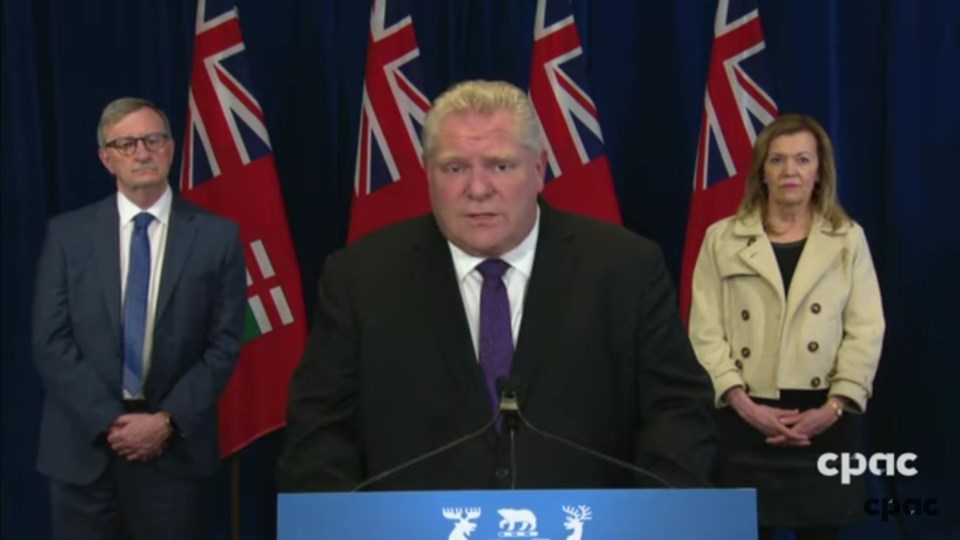TORONTO — Ontario's legislature will sit Tuesday and is expected to extend the province's state of emergency to June 2, while also holding question period again.
Only 42 out of Ontario's 124 members will be allowed in the chamber at any given time, and they will vote on both the motion to extend the state of emergency and a bill that makes pandemic-related changes to various acts.
Unanimous consent from the opposition parties is expected so that votes on all stages of the bill will happen quickly, said a statement from the government house leader's office.
Politicians have returned to the chamber to extend the state of emergency several times since the pandemic began — while observing physical distancing protocols — but have now also agreed to regular question periods.
The sessions will be held Tuesday, as well as May 19, 20, 26, 27, June 2 and 3.
The government is consulting with opposition parties about the possibility of extending sittings into the summer, said the statement from Government House Leader Paul Calandra's office.
Members are also expected to agree to authorize virtual sittings of the finance committee so it can conduct four-week studies of the economic impacts of COVID-19 on various sectors, including tourism, culture and heritage, municipalities, construction and building, infrastructure, and small and medium businesses.
It is expected to wrap up the overall study by Oct. 8.
Ontario's budget watchdog projected Monday that the province's deficit will quadruple to $41 billion this year, the largest in its history, as the COVID-19 pandemic cuts revenues and leads to increased spending.
The government projected in a mini-budget in March that its plan for $7 billion in new spending and $10 billion in tax and other deferrals would see the deficit rise from $9 billion to a projected $20.5 billion for 2020-21.
The Financial Accountability Office said in a report Monday that assuming Ontario eases restrictions gradually through the summer, the deficit can be reduced to $25.3 billion in 2021-22 due to a strengthening economy.
But the office also said that sharply increased borrowing as a result of higher deficits will push Ontario's net debt-to-GDP ratio to a record 49.7 per cent this fiscal year — much higher than the government's projection of 41.7 per cent.
Stores in Ontario are allowed to reopen Monday for curbside pickup after a weekend that saw the spread of COVID-19 slow to a pace not seen since March.
The measure announced last week is meant to help ramp the economy back up after the pandemic caused unprecedented job losses. According to data released Friday by Statistics Canada, 689,200 Ontarians lost their jobs in April, in addition to the 403,000 the agency says were lost in March.
All retail stores with a street entrance will be allowed to open to provide both curbside pickup and delivery — a move Premier Doug Ford has said will allow thousands of people to return to work.
On Friday, the government allowed garden centres and nurseries to fully reopen, and hardware stores could do the same on Saturday.
Ford also announced over the weekend that provincial parks will reopen Monday, though beaches, camping areas and playgrounds will remain closed and physical distancing must be maintained.
This report by The Canadian Press was first published May 11, 2020.
Allison Jones, The Canadian Press
Note to readers: This is a corrected story. A previous version, based on a government statement, gave an incorrect date for the extension of the state of emergency
